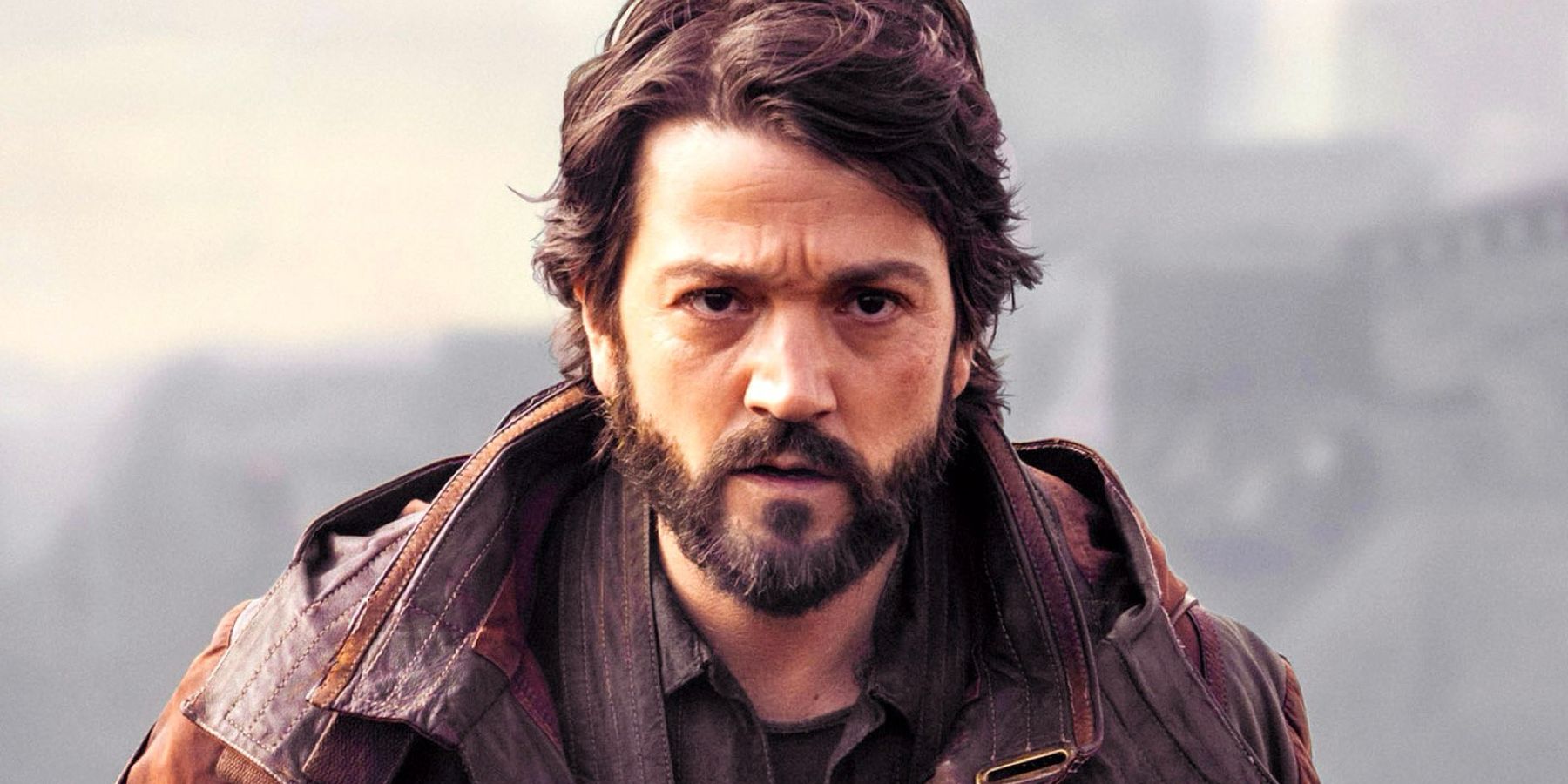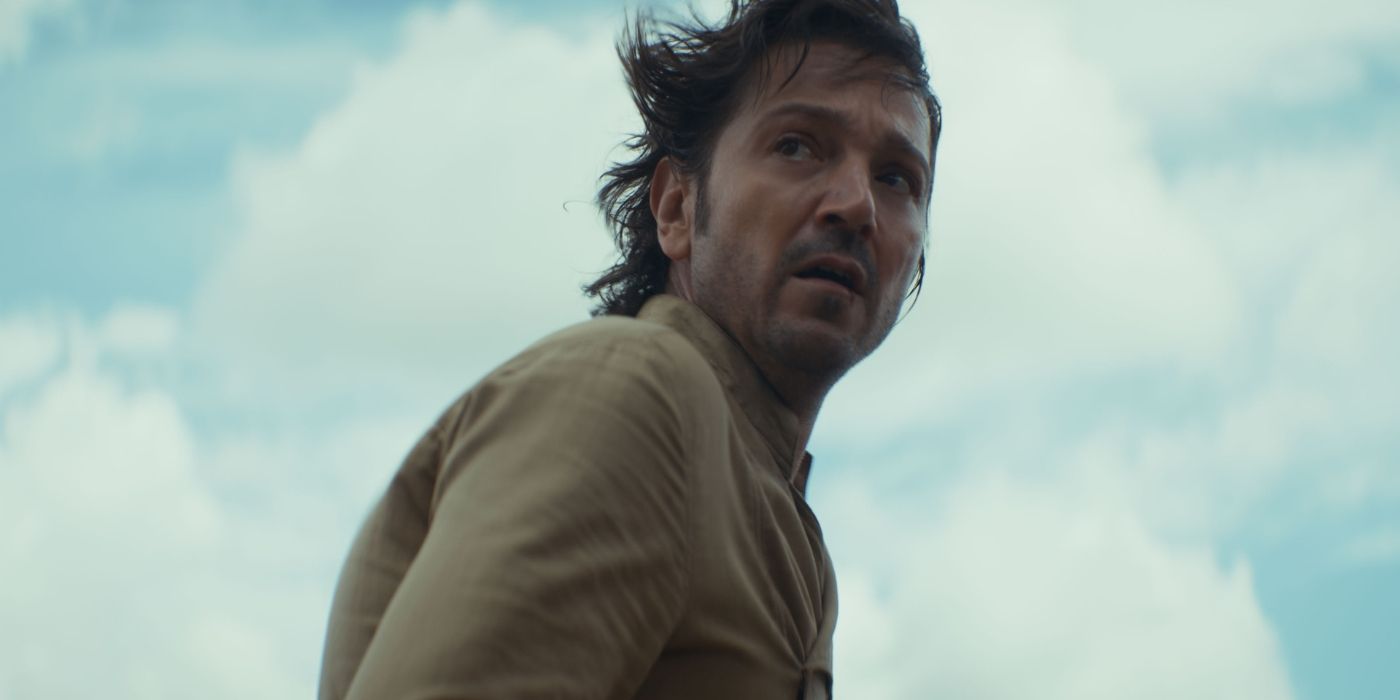There are few series on TV nowadays as politically sharp as Andor, but this edge seems to have confused some people. In a recent New York Times interview, series creator Tony Gilroy was asked about having created a “left-wing work of art,” and he openly denied having done such, explaining that he never thought about Andor that way, and that there isn’t anything about it that aligns the series with either side of the political spectrum. This is a common misconception about Star Wars, because it has always been inherently political, but even George Lucas himself never imbued it with ideology, only political commentary. Somehow, that’s enough to confuse some people, who simply have no idea what they’re talking about when branding Andor as “left-wing,” “woke,” “anti-capitalist,” or whatever else, while simultaneously praising Lucas’ original vision.
‘Andor’ Is Deeply Political, but It Forgoes Any Ideological Preaching
Most of this rhetoric comes from a rather poor outlook on politics: if the Rebellion is fighting the Empire, and the Empire is fascist (and, therefore, right-wing), then the Rebellion must be leftist, right? This narrow and simplistic view explains the sociopolitical hole we currently find ourselves in, because politics is infinitely more nuanced than that. Although Andor is political, the series does no ideological preaching whatsoever, because politics and ideology are different things.
Given how polarized the political arena is nowadays, it’s easy to miss that the Rebellion isn’t ideological at all. Some characters stand for political ideals, but none of them preach ideology or state that they want the galaxy to be this or that. Their position is merely to fight against Imperial oppression and for basic rights, like freedom of speech and people’s self-determination. Those are basic political principles that aren’t aligned with either side of the spectrum. The only clear ideological stance is the Empire’s obviously fascist one, but Andor uses democracy to oppose it. It’s perfectly possible to have an ideology and preach it in a democratic state, but impossible in a fascist one, which is authoritarian by definition — so much so that the Emperor (Ian McDiarmid) keeps the Senate open to give an impression of being democratic, but he doesn’t care about its deliberations in the slightest.
If there are any lingering doubts, let’s review the most politically engaged characters in Andor. Whenever Mon Mothma (Genevieve O’Reilly) takes the Senate floor, she simply reaffirms these democratic values, and is still booed or ignored every time. Luthen Rael (Stellan Skarsgård) has a whole spy network, but the most we ever see him taking a clear political stance is when he tells Dedra Meero (Denise Gough) that “freedom terrifies” her. Nemik’s (Alex Lawther) manifesto is a simple guide to mobilizing against tyranny; it’s more motivational than political, and not a drop of ideology. Even Saw Gerrera (Forest Whitaker), who is the most radical of the rebels, tells Wilmon (Muhannad Bhaier) that “we’ll be dead before the Republic is back,” clearly defining that as his political goal.
‘Andor’s Real Politics Are Accessible and Relatable to All Sides
It’s frankly baffling that people would think that Andor or Star Wars would have an openly ideological stance when the franchise is owned by one of the biggest media companies in the world. We live in a capitalist and currently politically polarized society, so taking a clear stance in that sense hinders its ability to maximize profit; focusing on the left or the right makes no strategic sense. Andor is clearly not about a side, and its message is easily understandable and accessible to all sides of the political spectrum. It’s simple: don’t kill people and let them live free, as Gilroy himself explains in the interview. What the Rebellion does is fight to defeat the Empire, which denies the galaxy these rights, and restore the Republic, which is democratic in essence.
That’s what the politics of Star Wars have always been about; Andor just looks at it from an objective perspective. The question it poses is: how far would you go to fight for what’s right? To answer this, the series delves into concepts that are as ideologically neutral as possible, like democracy, freedom, radicalization, and revolution. All of them are basic political concepts that may and have historically happened on all sides of the spectrum. Is it right to invade a planet, strip its people of their rights, and plunder it for resources? What Andor dares to do is apply these concepts to specific contexts. In the first arc of Season 2, for example, Bix (Adria Arjona), Brasso (Joplin Sibtain), and Wilmon are chased by the Empire on Mina-Rau for being “undocumented.” They are literally refugees who fled from Ferrix to escape Imperial oppression; if they get “documented,” they’d be sent back and likely even be executed. Later, an Imperial officer attempts to rape Bix, an unfortunately frequent occurrence by oppressors who believe they’re untouchable.
Some people stopped watching Andor altogether because it tackles these very real issues in a way that breaks their illusion of Star Wars being about lightsabers and blasters, but these confronting truths have always been present in the franchise. Darth Vader (Hayden Christensen) literally Force-chokes his eight-month-pregnant wife in Star Wars: Episode III – Revenge of the Sith; that’s both domestic and gender-based violence. The Empire colonizes Ferrix and Ghorman, but remember the Gungans on Naboo in Star Wars: Episode I – The Phantom Menace before them? Luke Skywalker (Mark Hamill) doesn’t join the Rebellion in Star Wars: Episode IV – A New Hope solely because he wants revenge against the Empire for killing his family, but because he knows that shouldn’t happen to anyone.

Related
Cinematographer Christope Nuyens breaks down the episodes of the critically acclaimed series he worked on.
Star Wars Has Been Deeply Political From the Start, and It’s One of the Franchise’s Greatest Strengths
It seems that people are either deliberately distorting what Andor is really all about by claiming it’s “too political,” or have never paid attention to Star Wars before. All those “boring” Senate scenes in the Prequel Trilogy really were relevant not only to the saga, but to our real world, too — does “taxation of trade routes” mean anything to you now? In that sense, George Lucas has always been clear about Star Wars being political. The Original Trilogy was an allegory for the Vietnam War, with the Empire being the U.S. and the Rebellion the Vietcong. The Prequels drew parallels to the Iraq War and how close the U.S. actually came to giving democracy away. In Andor, Ferrix and Ghorman outwardly resist Imperial occupation because they are nations that have the right to self-determination, and this right is often stripped from smaller nations by more powerful ones.
Star Wars is filled with political commentary, but Lucas, Andor, and Disney aren’t trying to brainwash anyone or convince viewers to support a cause, only to confront an uncomfortable reality and weigh whether it’s how things should be. Like Lucas before him, Tony Gilroy succeeds in using metaphors and allegories to expose real-world issues to people who are paying attention. You don’t need to have a degree in anthropology, history, political science, or sociology to get it, but you should be willing to learn something from them. Unfortunately, nowadays, most people don’t want to.

